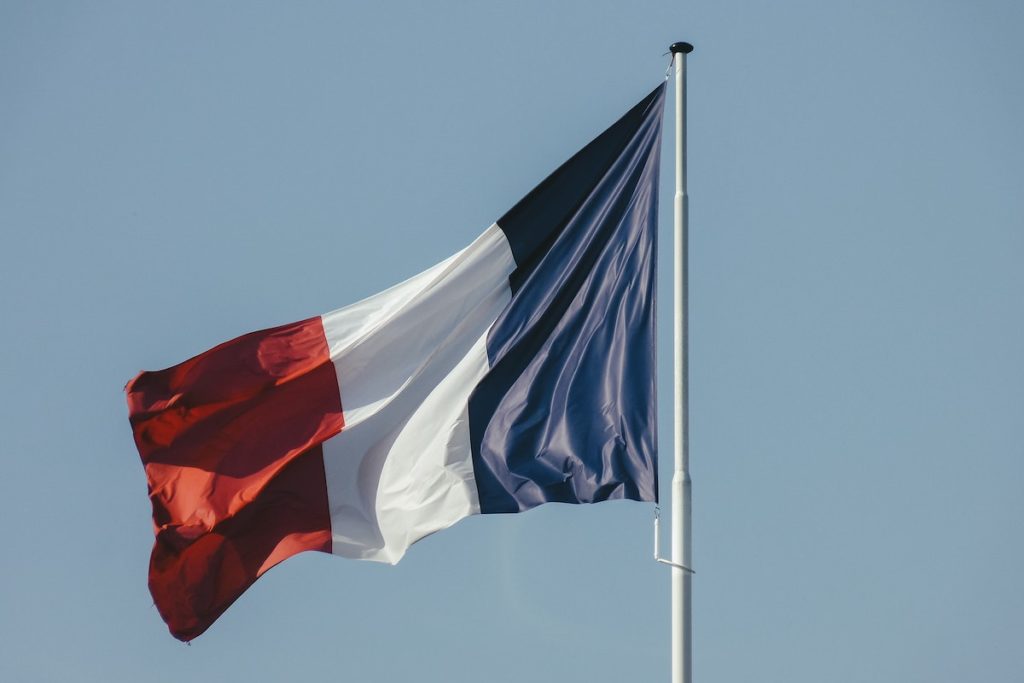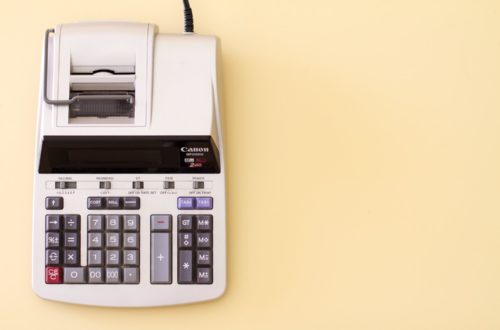How to open a bank account in France as a foreigner? Be ready for some paperwork and discoveries! As a newcomer, you are considered a non-resident by French banks. I’ll explain to you what it means and what you can do about it. I’m also giving you specific advice to save money on bank fees and international transfers. Read until the end for the best saving tips!

Table of Contents
How to open a bank account in France as a foreigner?
My experience as a French repatriating expat
When I relocated to the UK, I didn’t know how long I would live there. It was a one-way ticket with indefinite possibilities.
Among my to-do list to prepare for my expatriation, I closed my French current account to avoid the monthly bank fees, a very common practice among high street French banks. I just kept my French savings account and my online banking access.
So when I moved back home, 3 years later, I had no French current account and no French credit or debit card.
I wanted to change my French bank because I was not entirely happy with the customer service of my bank at the time. I was with Société Générale and I decided to check out other banks. At the time 100% online banks were not so common in France so I took appointments with several banks.
Well, I was very surprised to find out that it was not so easy! As I was a repatriating French expat, I was not a tax resident in France. Most banks I saw wanted me to open a bank account for non-residents!
It didn’t make sense to me as I was planning to stay for more than 6 months in France and passed the 6 months I would have been a French resident from the bank’s point of view. If you have a non-resident bank account, you can only have a current account. The savings accounts are not available to you except one called Livret A; which I already had in my previous bank…
I finally found a banker who agreed to open a bank account for a resident and asked me to move all my savings to his bank as compensation, which I ended up accepting. My French bank became Crédit Coopératif, but not for so long, but this is another story. I was not convinced by the customer service, again! It depends so much on your banker.
What is a resident according to French banks?
It is often easier to open a bank account in France if you already reside in France. The banks will take into account 2 criteria to consider you as a French resident:
- Physically reside in France for more than 6 months over a full tax year,
- And/or, receive monthly incomes on a French account from a France-based employer or from an activity in France.

How to open a bank account in France: Some extra difficulties for foreigners
What to expect?
If you are not a France resident as explained above, there is a big chance that banks will ask you for extra information and documentation.
The basic documents will be:
- Proof of address,
- Proof of ID,
- Proofs of origins of income (only in some instances, but I advise you to have it ready).
Among the documents requested by the bank, you need to provide proof of address (energy bill under your name, or if hosted, your host’s energy bill, his/her ID and a letter attesting he/she is hosting you). However, to rent a flat, the agencies and landlords ask for a RIB, the French way of calling the bank account details! It’s like a snail biting its own tail! Thankfully, some banks are more flexible than others on the proof of address requirement. You will need to provide your proof of identification such as a passport or an EU ID card + permit/visa if applicable. In some instances, proof of the origin of income can also be requested (payslips, income tax receipts…)
I’m going to be straightforward here; it is going to be harder for some nationalities, unfortunately. Of all the foreigners I have assisted in my professional life as a Global mobility manager, the 2 nationalities that had it more difficult were the USA and Iran… Politics and administrative rules can make it difficult for some citizens unfortunately when you expect it less…
USA
The Foreign Account Tax Compliance Act (FATCA) was adopted by the US administration and implemented in France in 2014.
The FATCA allows the US tax administration, and IRS, to request information about their American citizens’ clients from foreign banks. People having US nationality without ever having lived on American soil would also fall under the FATCA!
Following this ruling, and considering the heavy requirements of the American tax administration toward foreign banks, many French banks are reluctant to open bank accounts for US citizens. Nonetheless, it doesn’t mean it is impossible to open an account as an American in France, it can, however, be more difficult.
Iran
Following the lifting of sanctions and restrictions imposed by the United Nations and the European Union on Iran, still, many European banks still continue to refuse to provide services to Iranians. However, there is an evident trend of fading of such obstacles as European banks start improving their communication with Iranian banks. However it seems this situation has been improving in the past year, but it can remain a challenge in some traditional French banks.
Which banks provide services for non-residents?
Traditional bank international services
Face-to-face banking is still very common in France, even though new banking offers are currently disrupting the traditional French banking market. High street banks usually require you to be physically present at the local French branch to open your French account.
Some high-street banks have an online portal in English such as BNP Paribas or HSBC. A non-resident even has the possibility of opening a French bank account online with HSBC directly online just by providing proof of ID and a recent French proof of address, a great feature for expats!
Other French banks do not have English online banking but will have English-speaking bankers. It is a case-by-case basis, so I advise you to go to your nearest French bank and ask them if they have any English-speaking client advisors before choosing a bank because the website is translated into English.
Britline a British bank partnering with the French Bank Crédit Agricole is also a good option for UK citizens relocating to France. The whole bank account opening process can be done online and in English. Their service is only available to residents of the UK, Ireland, and France.
Here is a non-exhaustive list of French traditional banks as a reference.
| Bank name | Number of clients in France (2019) |
| CIC | 6.9 million |
| Crédit Agricole | 28.3 million |
| BNP Paribas | 7.4 million |
| Société Générale | 11.5 million |
| Crédit du Nord | 2 million |
| Banque Populaire | 9.6 million |
| Caisse d’Épargne | 20.6 million |
| Crédit Mutuel | 12.8 million |
| LCL | 6.3 million |
| HSBC France | 850,000 |
| Banque Postale | 10.7 million |
Readers who liked this article also read: How to find a job in France as a non-French speaker?
French online banks
Every online bank depends on a face-to-face « mother » bank. They are branches of traditional banks to expand their clientele with a 100% online service.
It is very common for online banks to open bank accounts only for French residents. Therefore opening a French bank account online is often not an option for newcomers. The bank will request the bank details from your previous French bank and/or proof of tax residence in France.
Boursorama Bank may accept for some cases, however, American nationals will not be accepted due to FACTA rules.
Neo-banks for foreigners and non-resident
Contrary to the online banks, the neobanks are not linked to any high street banks. Neobanks are actually payment institutions. They only provide current accounts and credit or debit cards. No cheques will be provided and no saving accounts offered. There is no possibility of depositing cash. It is really a new type of banking.
I personally like it. I opened an account a few years ago with N26, a German neobank, great for travelling that gives great Fx rates, very little fees, and amazing customer service. Everything is done via the App or the website.
I kept my traditional French account with Crédit Mutuel, without the credit card to avoid higher banking fees. So I’m just paying 2€/month to have the account with a chequebook, which can be useful to pay a security deposit or some subscription to an association without card readers.
The 4 main neobanks are currently:
Orange Banque
Revolut
N26
Nikel
In my opinion, the 3 last neobanks are good for expats. I will detail why in another post shortly.

How to save money on international transfer fees?
Whatever bank you choose in France, you may certainly need to wire money from and to your home country or previous countries of residence, as it is my case. There is a very simple way to avoid expensive international transfer fees that no bank currently offers.
I’ve been using Wise (previously called Transferwise), an international payment service that offers great Fx rates and transfer fees about 10 times cheaper than most banks and also cheaper than other transfer services on the market! Don’t look further; this is the cheapest and fairest option!
I’ve used it for transfers from France to the UK, from the UK to France, or from France to Brazil and I’ve always been happy. It is fast, easy, cheap and efficient.
If you need a free trial to be convinced, click on the image just below and tell me about it. I’m convinced you’ll like it.
*** This post contains affiliate links. If you finalise a service through those links, I may receive a small commission, at no cost to you. This is a great way to support my blog if you’re planning to take this service anyway. Thank you for your support as blogging is not free 😉 ***
A short fun video describing Wise service:
Can the banks reject my account opening requests?
Yes, a company has the freedom not to accept a person as a client. It is important to be aware that following the freedom of contracts in France, a bank can refuse to open a bank account to a non-resident without giving a motive. However, in case of refusal, the person could use their right to a bank account and go to the Bank of France to request assistance. The right to a bank account has been instituted in France by the art. L 312-1 of the Finance and Monetary Code to allow banking inclusion.
Bank account opening is subject to the French Finance and Monetary Code against money laundering and Terrorist activity financing.
Banks request from new clients official valid proofs of ID and proof of address. The bank also has to check the proof of income and capital before signing the bank account opening papers.
To receive the Bank of France assistance, you should provide:
– the refusal letter from one or several banks,
– an attestation letter certifying that you don’t already have an account in France
– valid and official proof of ID
– a recent proof of address (less than 3 months)
After verifying your documentation, the Bank of France will designate a bank that will have the obligation to open a basic current account for you. With the letter from the Bank of France and all the above-stated documents, you should go to the designated bank and you will be able to open a bank account.
To summarise, I would say that face-to-face banks with English-speaking assistance and some neobanks are great options for newly arrived non-French speakers. I personally really like the neobanks as I find them much cheaper according to my needs. I will compare in another post the best neobank for expats in France. Stay tuned!
If this information helped you, share the love with your friends by sharing this article and they will be grateful. It will avoid much research and surprises!
Liked this post? Pin it for later!




One Comment
Lara Tabatabai
Thank you for this great article Mademoiselle Guiga. When we moved in France in 2007, we approached the Credit Mutuel to open a bank account and it wasn’t a big problem. The thing that seemed to matter was that we were not “interdit bancaire”. They are very scared of that. This is when for example, you have debts and you couldn’t keep up with your payment. Surprisingly you can be “interdit bancaire” very easily in France. For example, one single check which is not honored and that’s it ! Also the overdraft in France they are not very generous. If there is unusual activity on your account, such as when my husband was booking all his plane tickets to go back between France and the UK at once, expect a call from the banker to ask you what is going on ! 🧐